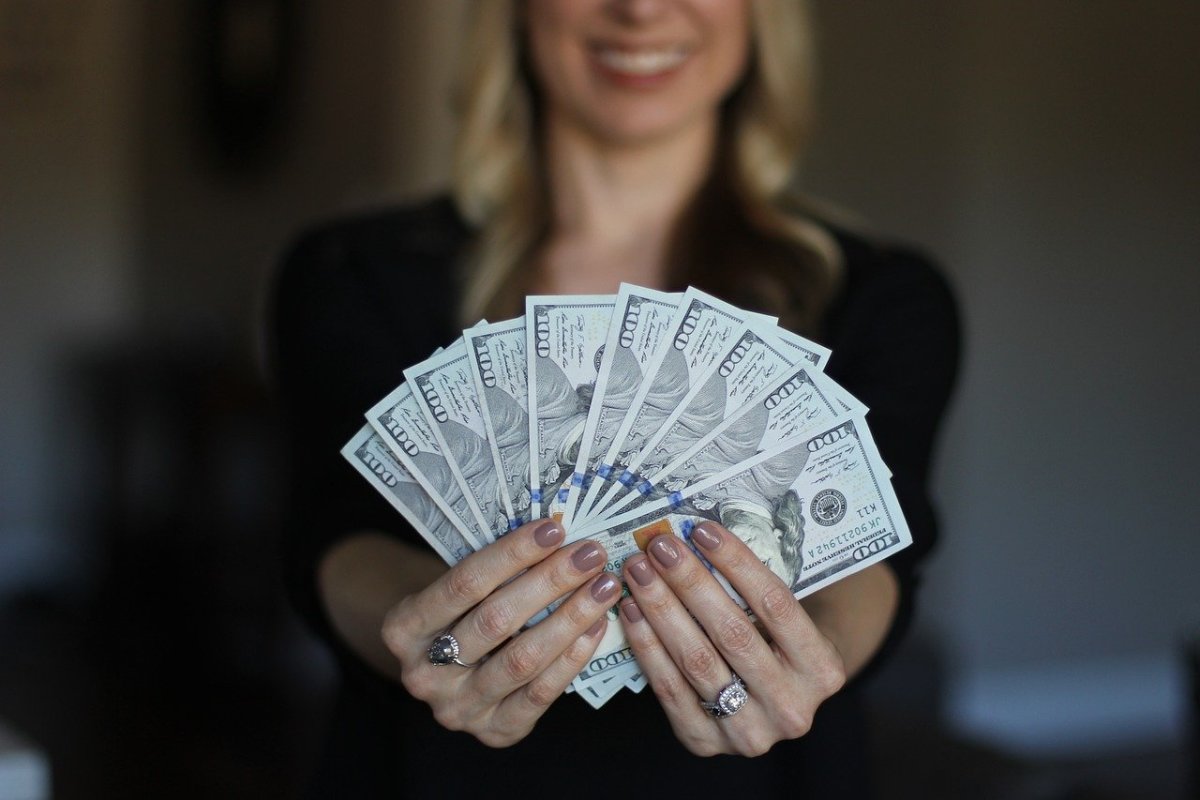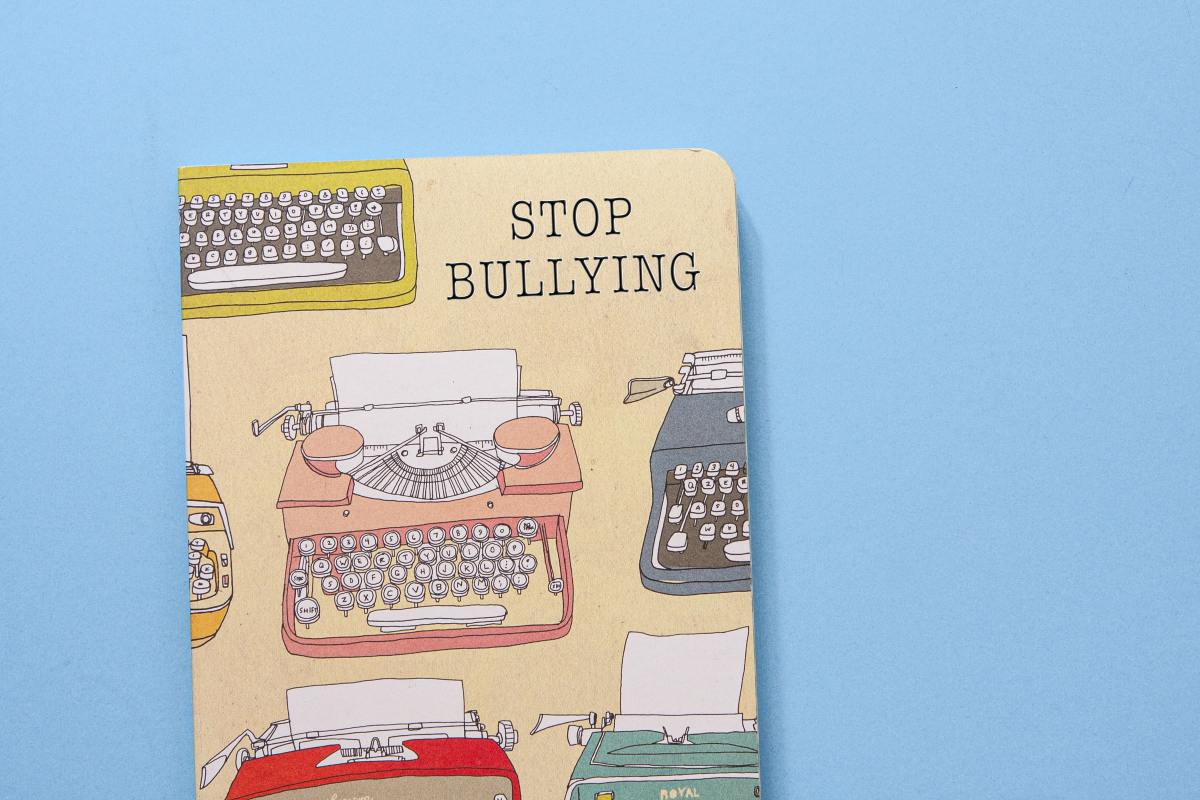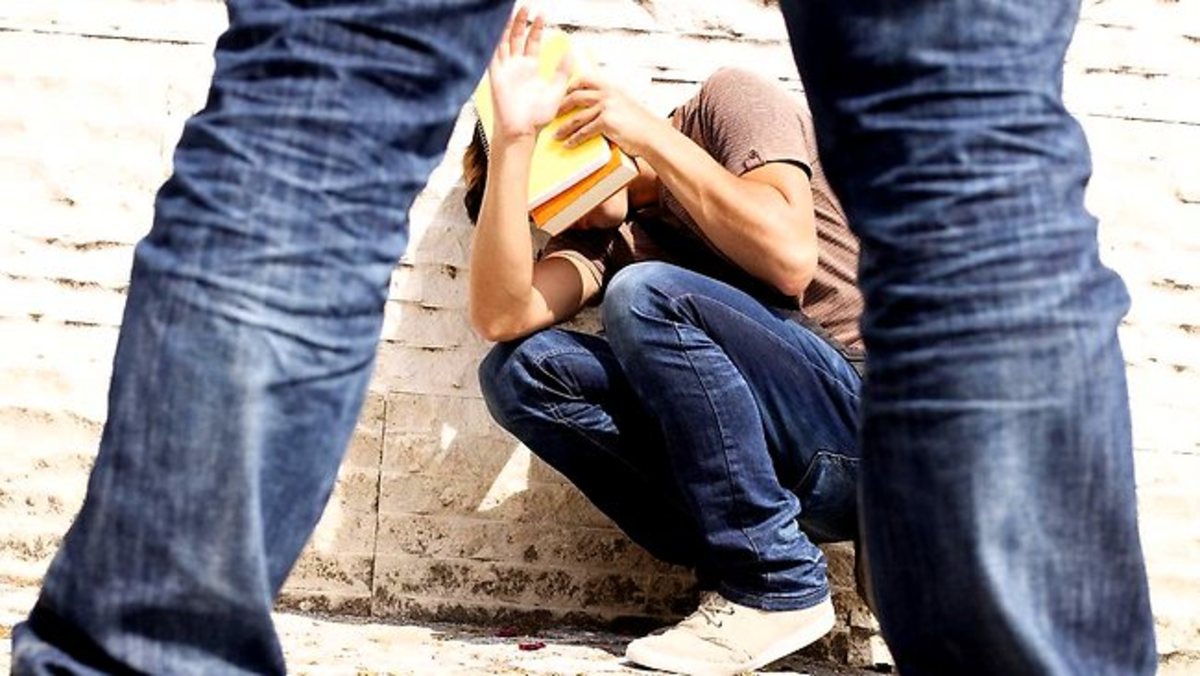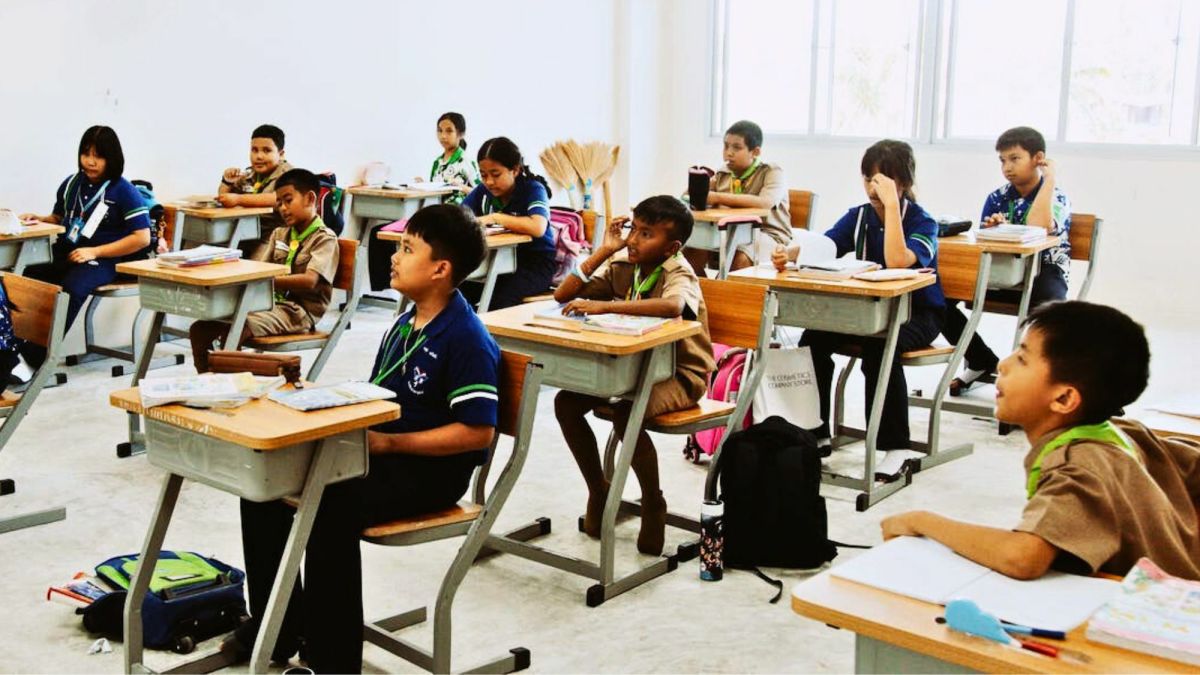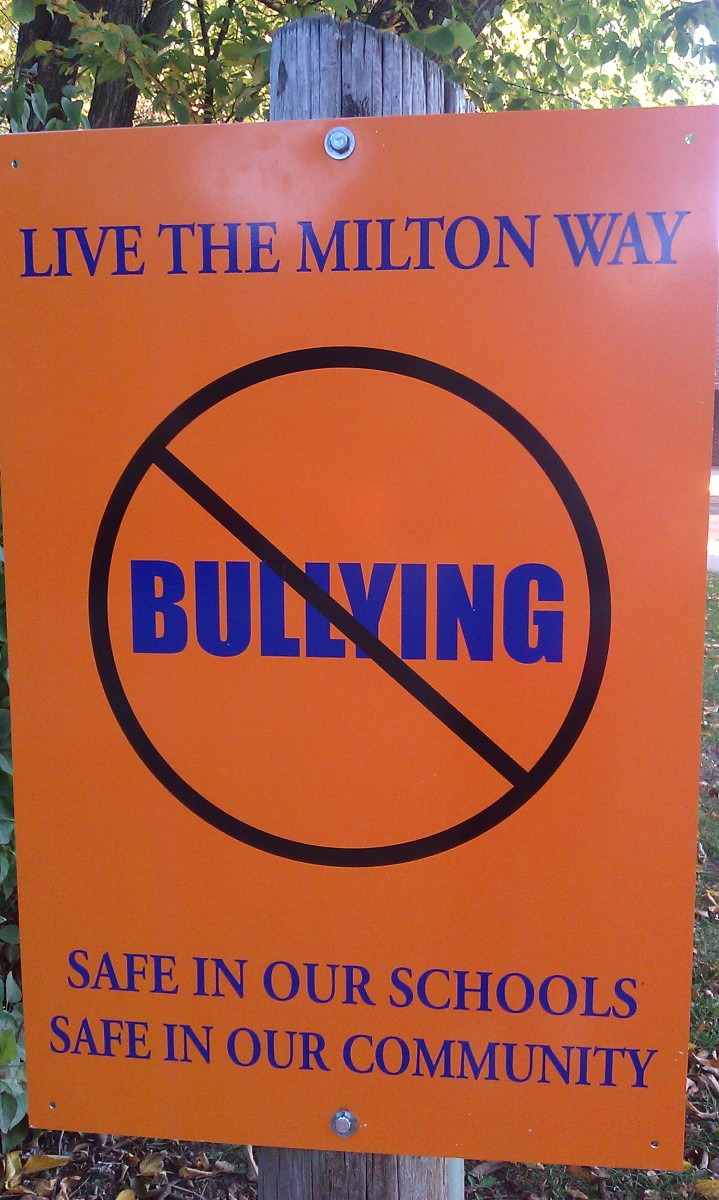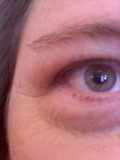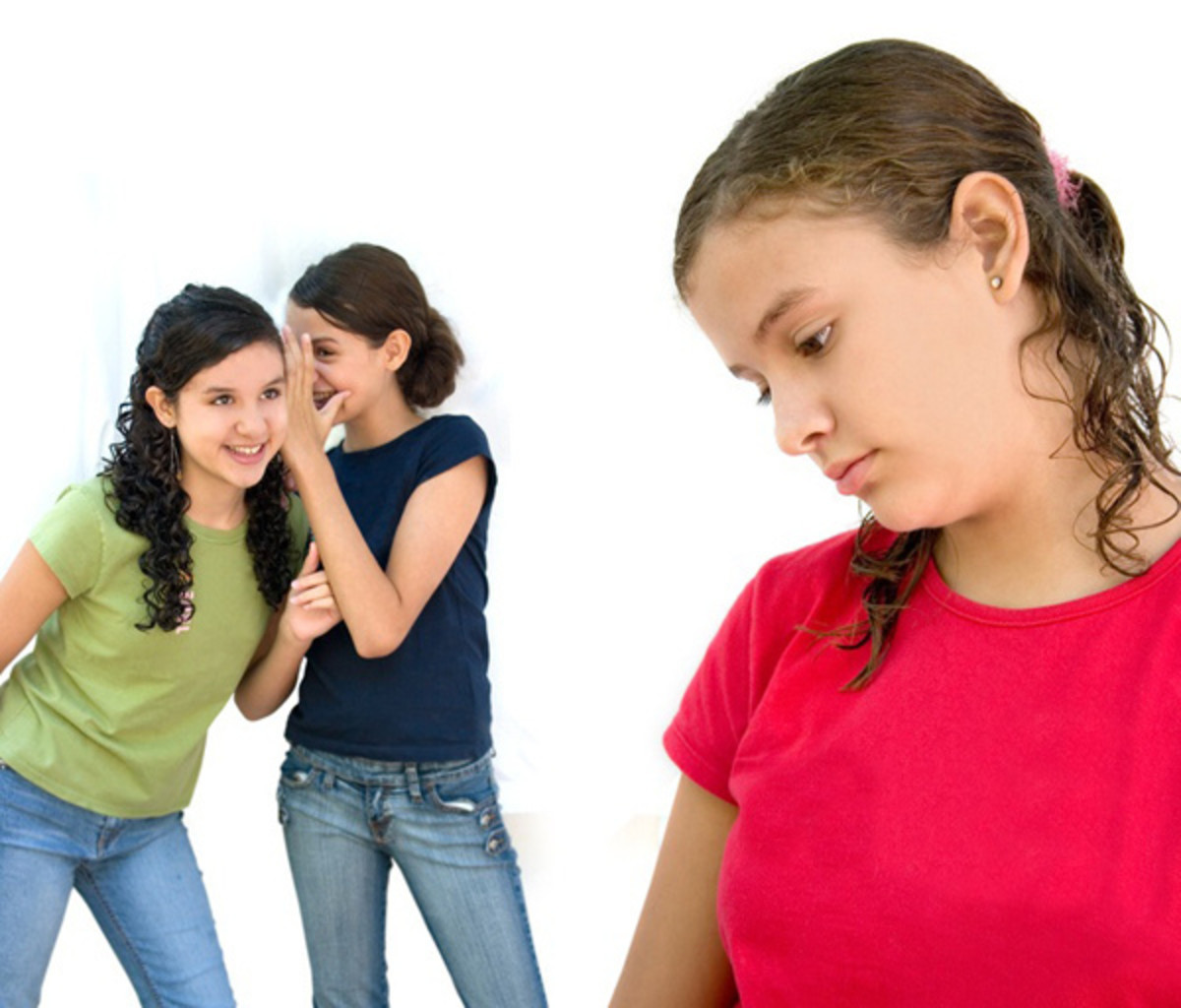What Causes Some Popular Children To Act Inconsiderately Towards Other Children
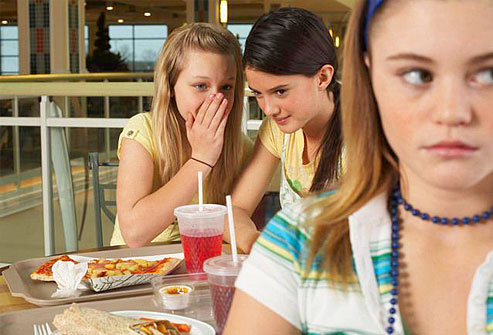
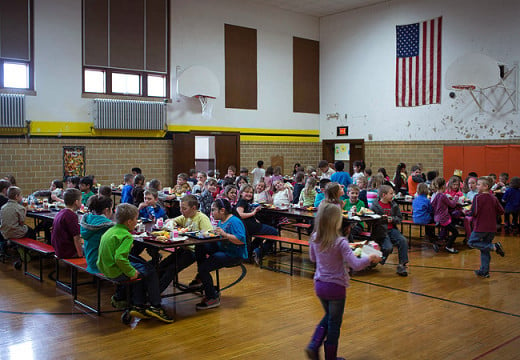
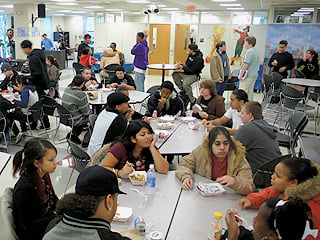

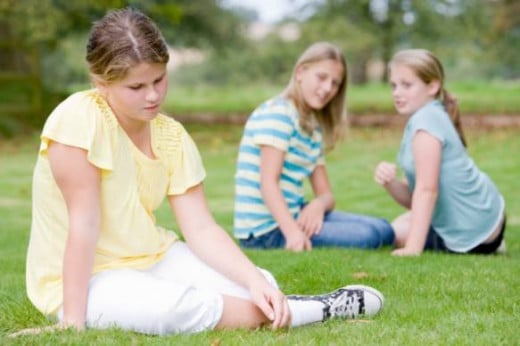

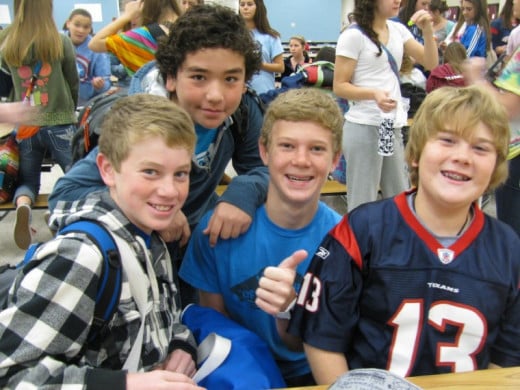


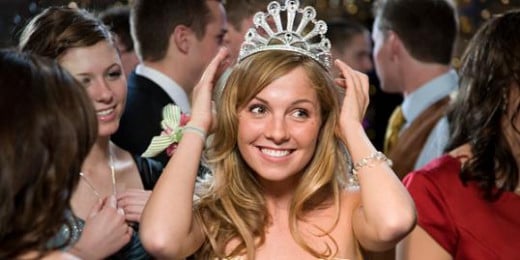
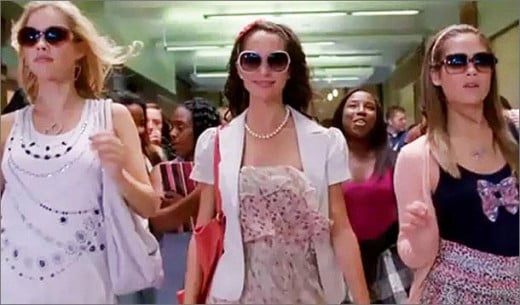
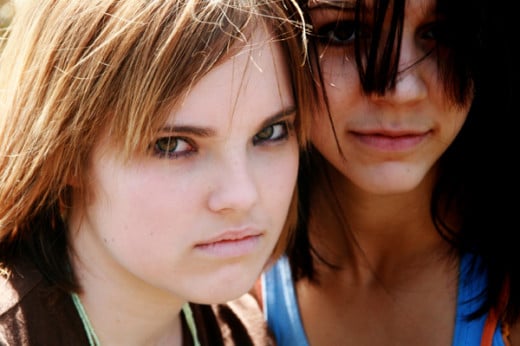

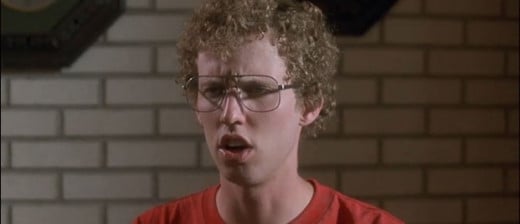
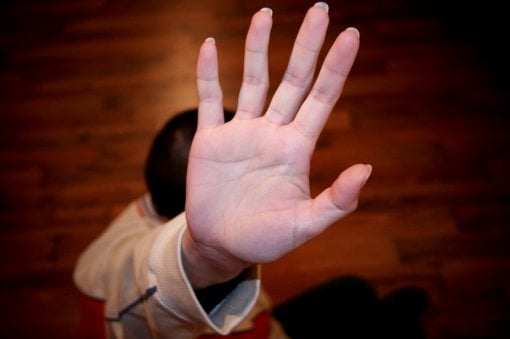
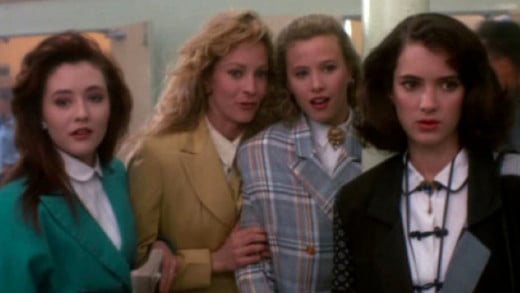
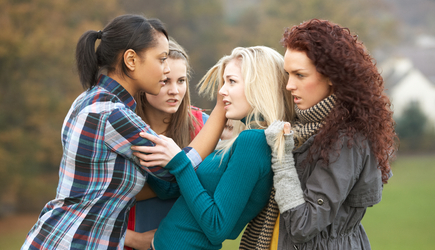

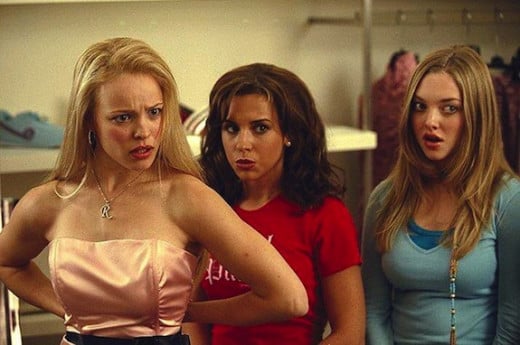


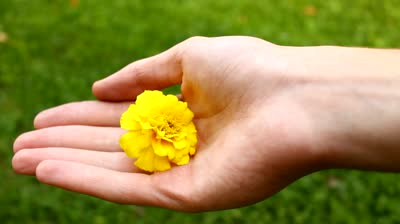
I AM................ and YOU'RE DEFINITELY......NOT!
In elementary, junior high, and high school, there is a pecking order among children. There is going to be the top and/or most revered pecking order while there is the bottom of the pecking order which is considered to be undesirable. Pecking orders in schools are a way for children to establish where they fit in and their respective place regarding a group.
Pecking orders is commonplace and an undeniable fact of life in school culture, whether it is elementary, junior high, and/or high school. Every child, without exception, is affected and influenced by the school pecking order. Schools reflect society on a microcosmic scale. In society, there is a pecking order, no doubt about it.
There are those at the top of the pecking order, those in between, and those at the bottom. There is no escaping nor denying that there is a pecking order. It is an inherent part of the human condition and societal construct.
Like society, elementary, junior high, and high schools have their own particular pecking order. The status of what is considered to be the top, in between, and bottom pecking order is highly dependent upon the culture of that particular school. In more academically oriented schools, it is the honor and/or A students who are at the top of the pecking order. There are schools where that distinction goes to the more athletically inclined students. Other schools see the most affluent and well dressed students at the top of the pecking order In a few schools, it is the toughest students who are at the top of the school's pecking order.
Conversely, those at the bottom of the pecking order is also dependent upon the respective school culture. In some schools, it is the most academically prodigious students who are at the bottom of the pecking order. In more affluent centered schools, it is the poorer students who are at the bottom. In other schools, students who are considered by others to be odd for some reason are placed at the bottom of the pecking order. In some schools in tougher neighborhoods, it is the more mild mannered students who are marginalized and considered to be at the bottom.
Besides the top and bottom student pecking order, there is the middle or in-between pecking order. Students in this pecking are not deemed as desirable as those on the top. They are not marginalized, stigmatized, ostracized, and/or considered to be as persona non grata as those on the bottom of the pecking order. They are in pecking order purgatory so to speak. They also can be hangers on with those who are in the top pecking order. However, they must conform with the spoken and unspoken rules of those in the top pecking order or they will fall from grace not only among those in the top pecker order but among the other students also.
Although there are variables as to who is at the top or bottom of the student pecking order, there are constant factors and indicators as to who is most likely to be either in the former or latter student pecking order. Usually, the more outgoing, gregarious, and attractive students are going to be at the top of the student order. Outgoing, gregarious, and/or attractive students are viewed more positively by other students. They view the former students as more intelligent, personable, and approachable. They want to be around such students. They also see such students as leaders and role models.
Oftentimes the introspective, reserved, quiet, and/or less attractive students tend to be relegated to the bottom of the pecking order. Introspective, reserved, quiet, and/or less attractive students are viewed more negatively by other students. They perceive the former students to be less intelligent, unapproachable, and unlikeable. Many students see such students as examples as to what they do not wish to be. They also see these students as the school outcasts to be avoided at all costs. Even though the introspective, reserved, quiet and/or less attractive students are highly intelligent, accomplished, and may possess other stellar characteristics, they are often not viewed by other students as leaders and role models.
Popular students are considered to the at the top of the student pecking order. They are often viewed and treated as the celebrities at their respective school. Other students look to them as to what, where, and when to do. Popular students have advantages, perks, and privileges that less popular, particularly the unpopular student do not have.
Popular students because of their high status have power and influence among their peers and other students. Whatever they say and do,are listened to by other students. They oftentimes receive the respect of other students. They subconsciously know the power they have over their friends, classmates, and other peers. Some popular students use their popularity for the benefit and empowerment of others. They see their popularity not as power play but as a unifier to improve the lives of other students of their respective schools.
However, there are popular students who strongly believe that as a result of their popularity, they are vastly superior to other students. They see their popularity as a means to treat other students as they please. They contend that because of their popularity, if they treat other students badly, little or nothing will be said to them. In fact they assert, that the recipient of their treatment brought this upon themselves.
Some popular students believe that they can do no wrong as the majority of students like and or behind them. Many bullies are popular students who get away with mistreating others because based upon their popularity, they are viewed as the golden boys/girls while the victims, especially if they are the less popular students are the ones who are demonized. Not only students, many teachers oftentimes look the other way when a popular student bullies and/or otherwise mistreat a less popular student. The less popular student is considered to be of little or no worth while the popular student is viewed as an asset to the school.
There are popular students, as a result of their elevated status in school, can mistreat other students who they deem to be lesser with total impunity. After all, the school body considers the popular students to be an investment/asset. Many teachers and other authoritative school authorities are extremely loathe to reprimand the misbehaving popular student, especially if he/she is a highly placed student either academically, athletic, and/or creatively for this reason. They see this student as enhancing the school reputation and if negativity leaks out, the reputation of the student as an representative of the school will be tarnished.
A study done by the University of California in Los Angeles maintained that bullies are popular, have high social standing, and receive a great deal of peer support. School bullies are well aware of their power and oftentimes use it to subjugate and harass those students who are deemed to be weaker or marginalized. While there are popular students who are overt bullies, there are others who are covert bullies. They have a certain image to maintain to the other students and teachers so when no one is looking, they ill treat other students, particularly those who are at the bottom of the student pecking order who no one likes anyway.
Popular students because of their high status have a large amount of friends and associates. They also have hangers on who believe that the former's popular status will rub off on them. There are popular students who have others do their dirty work as far as mistreating other students go. They believe that as popular students, others believe that they are beyond reproach and they do not want to lose grace in the eyes of others. So if they wish to do their misdeeds, they have other students, whether friends, associates, and/or hangers on to do the work for them. In this way, they would remain anonymous.
Then some popular students intimidate their friends, associates, and/or other hanger ons to do their misdeeds as far mistreating other students go. The latter are told that if they wish to remain in the good graces of the popular students, they had better to do the latter's bidding. Many students want to be popular by proxy so they do the popular student's bidding although it is wrong. They would do anything to be associated with the popular student and/or to be in the popular crowd. Not to do so means that they would be relegated to a less popular crowd or perhaps, the bottom of the pecking order at the slightest negative word of the popular students. There are students who view being cast out of the popular group a fate akin to the darkest, most abysmal inferno.
Many popular students beleve that they are smarter, more attractive, stronger, and more positive than other students. On these bases, they believe that they have the right to be domineering towards other students who they view as pawns in their particular game. Yes, there are popular students who get and receive a visceral thrill out of treating and running over other students in a bombastic way. They feel that the other students deserve such treatment because they are weaker thus needing someone to show and tell them what, when, and how to do. After all, they are the elect.
There are popular students who feel that the rules for other students do not apply to them. They feel that they are above the laws and rules. In their mindset, they are popular as others put them on a pedestal and follow their every move. With that popularity, they contend that since others look up to them, they are okay, in fact, they are beyond super. They maintain that because they are super, they can do things that other students cannot do, both good and bad. Some popular students believe that they are totally untouchable regarding mistreatment of other students. Their popularity is a shield for their wrongdoings. If they mistreat another student, no one would dare to approach and/or chastise them as they are angels in the eyes of the student and teacher body.
Many popular students believe that because of their respective status, they can treat others in any they wish. They also believe that their popularity status is a permanent thing. What they fail to realize is that popularity is totally transitory and it depends upon how other students feel towards them. What is popular a couple of semesters or years will not be popular forever. Many popular students have incurred the dislike, even hatred of other students because they mistreated or otherwise disrespected.
Furthermore, life progresses and the popular student in elementary, junior high, or high school may become unpopular if he/she advances another education depending upon the particular culture and/or construct of the school. The less popular or unpopular student he/she derided can be more popular than he/she at a new school. Better yet, the less and/or unpopular student that he/she made fun of and/or treated cruelly will probably go further in life than him/her because the former had his/her priorities in order.
In summation, there is a pecking order among students at the three level of schooling. The pecking order is where students find out who they are and where they belong. There are desirable and undesirable pecking orders. Popular students are at the top of the student pecking order. They have privileges and advantages that others students do not have.
Some popular students use their popularity for good. However, there are others who use their popularity for self-aggrandizement and as a way to bully others. Sadly, they do not realize that popularity is often a transitory which last while they are in that particular school. Once they graduate and go on to another school, they may be no longer popular. The unpopular student who they cruelly derided may be the popular one at the new school they attend.
Many popular students become unpopular fast as a result of their cruel treatment of others. They must realize that every student is worthwhile and has something to contribute. They are no better than any other student because they are popular while they are not. Popularity is never an excuse to treat another student with less the respect that he/she deserves.
© 2013 Grace Marguerite Williams

